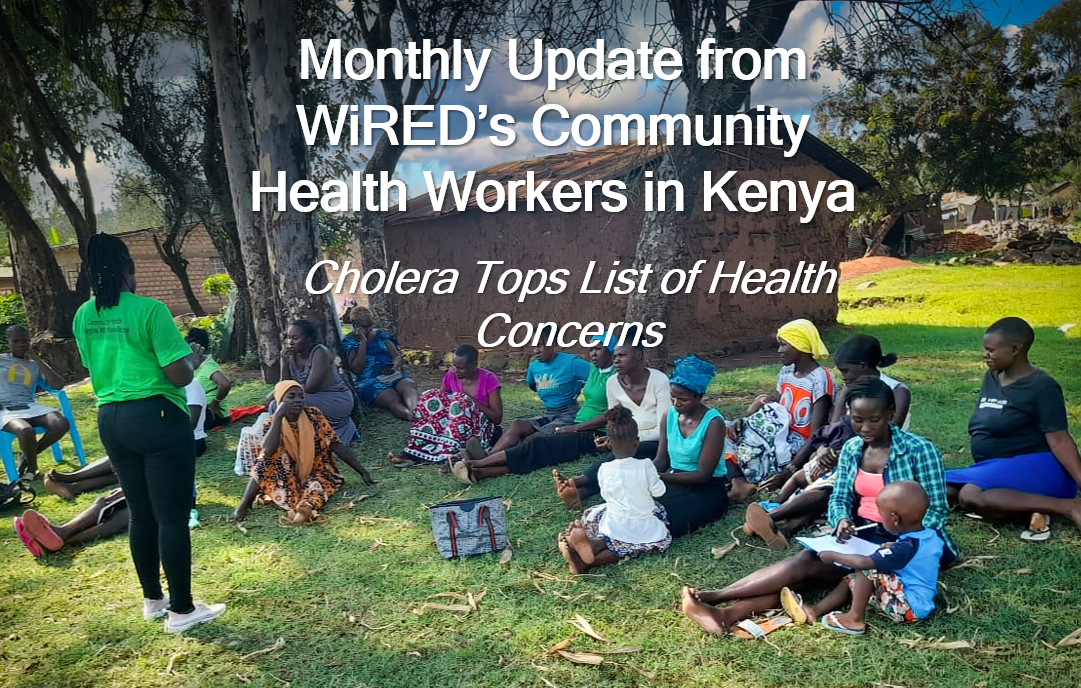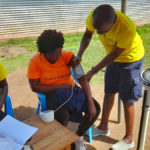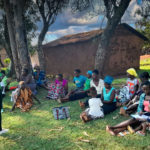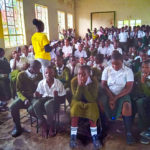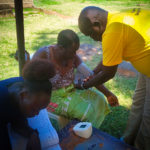By Allison Kozicharow; Edited by Elizabeth Fine
In May 2024 WiRED International’s community health worker (CHW) team in Kisumu worked amidst torrential rain and flooding. They visited families, conducted group health education sessions, diagnosed and treated diseases and referred people as needed to health facilities for higher-level care.
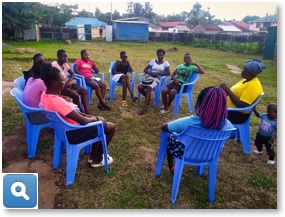 What is a typical work month like for a WiRED CHW in Kisumu?
What is a typical work month like for a WiRED CHW in Kisumu?
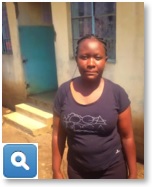
For example, CHW Lency Mmbone reached 493 people with health services while working 24 hours per week in May. She reported that the health topics she covered most in her community visits were cholera, proper handwashing, mental health, family planning, HIV, COVID-19 and pre-exposure prophylaxis (PrEP) and (post-exposure prophylaxis (PEP) education to prevent HIV. Add to that list a myriad of other health issues — all in the course of a month! Lency’s CHW training and ongoing study enable her to field a wide variety of health conditions as she provides critical services in Kisumu’s informal settlements where it is difficult for people to obtain or afford regular healthcare.
The CHWs noted a rise in cholera this month, no surprise given the extensive flooding in Kenya. Cholera typically emerges when access to clean water is absent, especially during rainy seasons. Here is Ms. Mmbone’s account of one families’ experience with cholera:
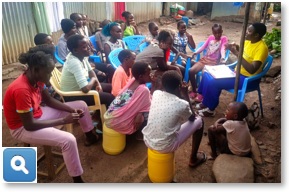 During my field work I came across a family that was sick with cholera and suffering from diarrhea. They had no idea what to do. I talked with them about cholera and its causes. Through our discussion I learned that they buy food along the roadside, they cook at home without washing vegetables and they eat fruit that is not washed well or washed in dirty water. I explained to them the importance of practicing good hygiene and safe food practices such as washing hands before and after handling food and cooking and making sure that food is washed with clean water and thoroughly cooked. This is especially important during floods when water becomes contaminated.
During my field work I came across a family that was sick with cholera and suffering from diarrhea. They had no idea what to do. I talked with them about cholera and its causes. Through our discussion I learned that they buy food along the roadside, they cook at home without washing vegetables and they eat fruit that is not washed well or washed in dirty water. I explained to them the importance of practicing good hygiene and safe food practices such as washing hands before and after handling food and cooking and making sure that food is washed with clean water and thoroughly cooked. This is especially important during floods when water becomes contaminated.
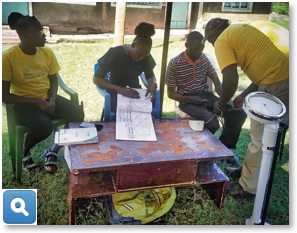 CHWs, such as Ms. Mmbone and the entire WiRED team, provide vital access to health care that simply doesn’t exist in low-resource regions like Kisumu. As trusted local voices, CHWs can prevent disease through health education, make diagnoses and provide treatment for many illnesses. Moreover, when a patient needs higher-level care, CHWs provide a bridge to healthcare professionals. CHWs also are trained in community health surveillance techniques where they are on watch for conditions that might call for intervention by health authorities. Such surveillance is critical in preventing disease outbreaks.
CHWs, such as Ms. Mmbone and the entire WiRED team, provide vital access to health care that simply doesn’t exist in low-resource regions like Kisumu. As trusted local voices, CHWs can prevent disease through health education, make diagnoses and provide treatment for many illnesses. Moreover, when a patient needs higher-level care, CHWs provide a bridge to healthcare professionals. CHWs also are trained in community health surveillance techniques where they are on watch for conditions that might call for intervention by health authorities. Such surveillance is critical in preventing disease outbreaks.
CHW Monthly Report
During the month of May 2024, 20 CHWs in Kisumu, Kenya, reached a total of 11,231 people with health services. Working 24 hours per week, each of the CHWs met with at least 84 patients a week, and the largest number seen in a week by a single CHW was 506, most of them in health training classes.
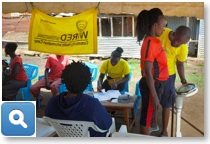 In May the top health-related concerns were, as follows, in order of prevalence:
In May the top health-related concerns were, as follows, in order of prevalence:
- Cholera
- HIV/AIDS
- Malaria
- Tuberculosis
- Menstrual hygiene
- First aid
- Sexually transmitted diseases
- Drug abuse
What is cholera?
Cholera is an acute intestinal infection caused by ingestion of food or water contaminated with the bacterium Vibrio cholerae. Without treatment, death can occur within hours.
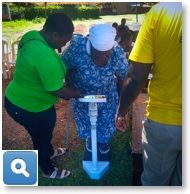 WiRED’s Cholera module describes cholera and its prevention, transmission, symptoms, treatment and complications. Also, the course contains a technical section designed for medical professionals that gives information about cholera treatment and vaccines. WiRED offers the module in English, French, Spanish and now Ukrainian.
WiRED’s Cholera module describes cholera and its prevention, transmission, symptoms, treatment and complications. Also, the course contains a technical section designed for medical professionals that gives information about cholera treatment and vaccines. WiRED offers the module in English, French, Spanish and now Ukrainian.
The World Health Organization states that cholera cases uptick most during extreme weather caused by climate change. Other triggers for cholera include poverty, civil conflict and inadequate health agency response.
Climate change, flooding and cholera
Scientists no longer equivocate about the direct relationships between climate change and flooding. More frequent and heavier rains are a result of warmer air temperatures caused by carbon accumulation in the atmosphere. In turn, increased flooding contaminates water for drinking, bathing and food preparation, and water contamination means increased bacteria levels in the water. More bacteria mean more disease, such as cholera.
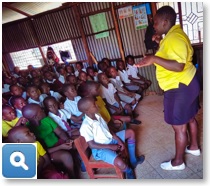 As climate change brings about increased health threats, WiRED’s training program will prepare CHWs to address illnesses they will encounter in their work. CHWs are currently prepared to recognize cholera and several other illnesses that cause severe diarrhea and to treat diarrhea that, through dehydration, can kill patients and especially children.
As climate change brings about increased health threats, WiRED’s training program will prepare CHWs to address illnesses they will encounter in their work. CHWs are currently prepared to recognize cholera and several other illnesses that cause severe diarrhea and to treat diarrhea that, through dehydration, can kill patients and especially children.
Sources: New York Times and World Weather Attribution

